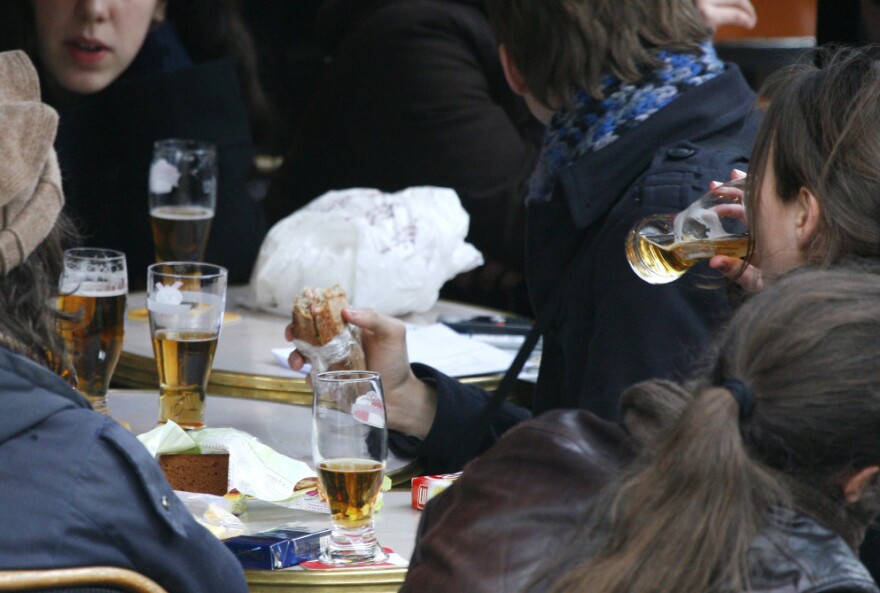Many European parents, and some American ones, too, have long figured if they let their kids drink alcohol at home, they'd be less likely to go hog wild with their friends. But recent studies of teen drinking behavior don't bear that out.
That's unwelcome news in places like France, where these scientific developments are running head long into a culture that loves its wine.
France in recent years has seen pop-up street parties – organized via Facebook – that are well attended by vodka-shooting French teenagers. French alcohol researchers say these events reflect a growing problem of binge drinking among French teens.
French government surveys show the number of French teens who drink heavily is on the rise, says Bertrand Nalpas, who heads the alcohol and addiction office at the French National Institute on Health and Medical Research.
He says about 20 percent of French 17-year-olds are drunk at least three times a month. That's despite a recent tightening of laws in France that now prohibit anyone under 18 from buying alcohol.
The up-tick in binge drinking raises serious concerns, says Nalpas. He says data now shows that when kids start drinking, especially binge drinking, at a younger age, "this increases really hugely the risk of becoming dependent [on] alcohol in the future."
Nalpas says the French are not immune to the growing evidence that suggests that kids who are allowed to drink in the home are at greater risk of developing alcohol-related problems.
"The age of first drink is about 12 years old in France," he says. That first drink is usually at home with the family, which has made it difficult, says Nalpas, to get out the message that alcohol can be dangerous. If kids see their parents and grandparents drinking, he says, they think, "I can drink also."
But it can be tricky for French parents who take a hard line on drinking. Pascale Dhote, a cardiologist, says she and her husband, who is also a doctor, warned their three children early on that alcohol wasn't good for their health. But it was difficult when visiting grandparents who didn't quite buy the science.
"Even when there are little ones, people say, 'Taste it, taste it. Wine is good. You have to taste it. It's part of French culture – you have to try it," Dhote says in French. "But I say that the children are too small. As a doctor, I know that their liver isn't fully developed until they're adults. And it's not worth it to mangle their organs or their brain. But systematically, they're asked if they want to try it."
Her parenting seems to have worked. Pascale's 22-year old son, Valentin Dhote, an engineering student, says he seldom drank as a teenager. He says he thinks it's possible for French teens to delay drinking alcohol but still appreciate the culture of wine in France when they reach adulthood.
That's a message Nalpas, of the French National Institute on Health, would like to see promoted throughout his country.
"It's not necessary to drink," he says. "The symbol of the French with the bottle of red wine and the bread and the hat. We have to change that."
Copyright 2021 NPR. To see more, visit https://www.npr.org.



